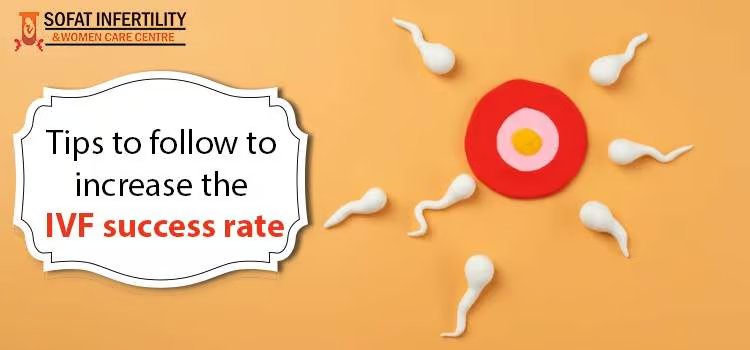All You Need To Know About ICSI (Intracytoplasmic Sperm Injection)
Share this Post to earn Money ( Upto ₹100 per 1000 Views )

Infertility is when you are unable to conceive naturally despite trying for a period of six months to a year or more. Infertility can occur in men and women both. However, with the advancement in medical science, assisted reproductive technology (ART) techniques such as IVF (In-vitro Fertilisation), ICSI (Intracytoplasmic Sperm Injection) and more are used. These IVF treatments can help people with infertility get pregnant. You can get the best IVF treatment in Ludhiana from the best IVF centre. ICSI is one of the best methods for male infertility. Numerous reasons, such as sperm count, quality, health, autoimmune disease and more, can cause infertility or fertility issues. However, assisted reproduction can help such males become biological fathers and fulfil their dream of becoming parents.
What Is ICSI (Intracytoplasmic Sperm Injection)?
ICSI is a form of IVF and is recommended in the case of male infertility, such as issues with sperm count or quality. In this procedure, live, viable sperm is injected directly into the egg in the laboratory. It is named intracytoplasmic because the sperm is injected into the egg’s cytoplasm. It increases the chances of the couple to conceive if male infertility is causing issues in conceiving. If the man has a low sperm count, they can get low sperm count treatment in Ludhiana from a reputed IVF centre. It helps increase the quality and quantity of the sperm, which are then prepared, and a single healthy sperm will be used in the ICSI procedure for fertilisation. After this, the fertilised egg develops into an embryo, which is then transferred into the partner’s uterus.
When Is ICSI Recommended?
-
Anejaculation (inability to ejaculate)
-
Low sperm count
-
Blockage in the male reproductive system
-
Poor sperm quality
-
Retrograde ejaculation (when ejaculate flows back into the bladder)
-
Using sperm and eggs that were previously frozen or cryopreserved
-
Traditional IVF did not provide successful conception
In all these cases, the best IVF doctor in Punjab may suggest an ICSI procedure and increase your chances of conceiving successfully.
ICSI Procedure
Before the procedure:
For the males who are providing sperm samples, they must:
-
Avoid having sex or masturbation 2 or 3 days before sample collection.
-
They need to masturbate in their home and provide a sample within 60 minutes or in a private room in the best IVF centre in Punjab and provide the sample to the concerned person. If the male has problems with ejaculation or other issues, then other sperm retrieval methods are used, invasive or non-invasive, depending on the male’s particular condition.
-
Semen analysis is done immediately to check the sperm quality count, motility, vitality, morphology, pH and more.
Before starting the procedure, the egg and sperm collection is done, and the following steps are taken:
-
Ovulation Induction: The partner or donor of the egg will be given ovulation induction treatment, which stimulates the ovaries to produce more eggs. Normally, only one egg is matured at a time.
-
Egg Retrieval: After the ovulation induction treatment, the matured eggs are retrieved from the women. It is done using a thin needle; it is inserted through the vagina into the ovaries and eggs are retrieved. This is done under mild anaesthesia and is generally scheduled on the same day of sperm collection unless frozen sperm are used. You must get such IVF treatments in Ludhiana from the best IVF centres to ensure and increase your chances of success.
During the ICSI procedure:
-
The egg is placed on a lab dish.
-
Using a thin needle, sperm is picked.
-
The needle is inserted into the egg’s cytoplasm
-
Sperm is injected into the egg’s cytoplasm
-
The needle is removed from the egg
After the ICSI:
-
The fertilised egg is monitored.
-
After five or six days, it should form a blastocyst (divide into cells).
-
Blatocyst’s mass and size are examined to estimate the probability of successful pregnancy.
-
Once the embryo develops, the best IVF doctor in Ludhiana will examine your case and determine an appropriate time for embryo transfer.
-
An embryo is transferred into the uterus using a catheter, which the doctor inserts through the cervix. For the implantation to be successful, the embryo must attach or implant itself to the uterine lining.
-
After two weeks of embryo transfer, a pregnancy test is done to check whether the pregnancy is established.
Success Rate Of ICSI
Although no ART technique guarantees 100% success, they do improve the chances of conceiving. ICSI has a success rate of around 50 to 80%, but the results can vary depending on several factors, including the couple's overall health and the underlying cause of infertility.
Conclusion
Male infertility affects a man’s chance of conceiving, but treatments such as ICSI and IVF can improve the chances of conceiving. ICSI is the best procedure for male infertility. It is best for people with ejaculation issues, blockage and sperm-related problems. You can get cheap IVF treatment in Punjab from the best IVF centre to ensure successful results. Although ICSI does not guarantee 100% success, it improves your chances of conceiving successfully by 50% to 70%. Therefore, if you have trouble conceiving normally, consult an IVF specialist and fulfil your dream of becoming a parent.

 salenawilson
salenawilson 



![CelluCare Price - [ HONEST REVIEWS 2024 ] Balancing Health and Affordability!!](https://blog.rackons.in/uploads/images/202407/image_380x226_6687bcded3b19.jpg)
